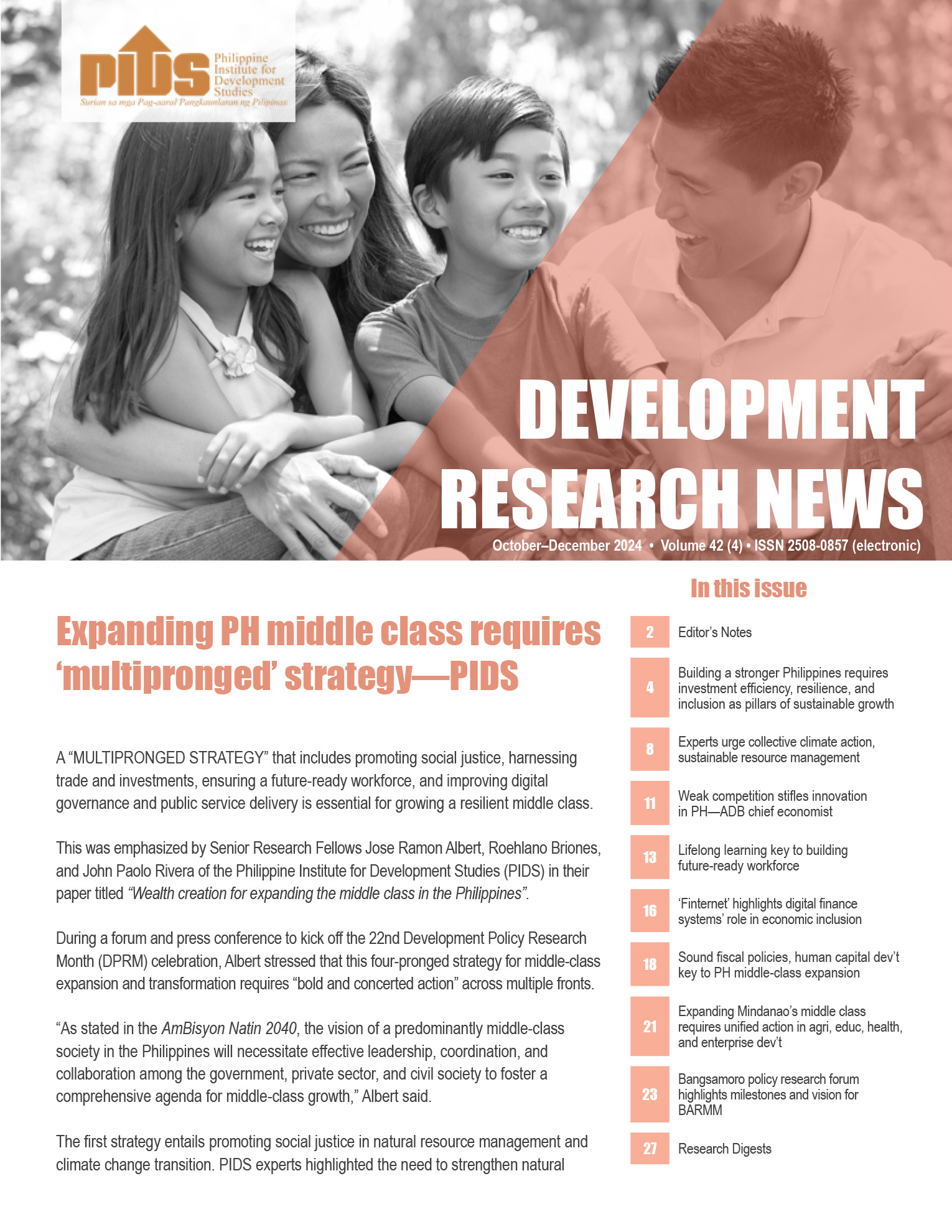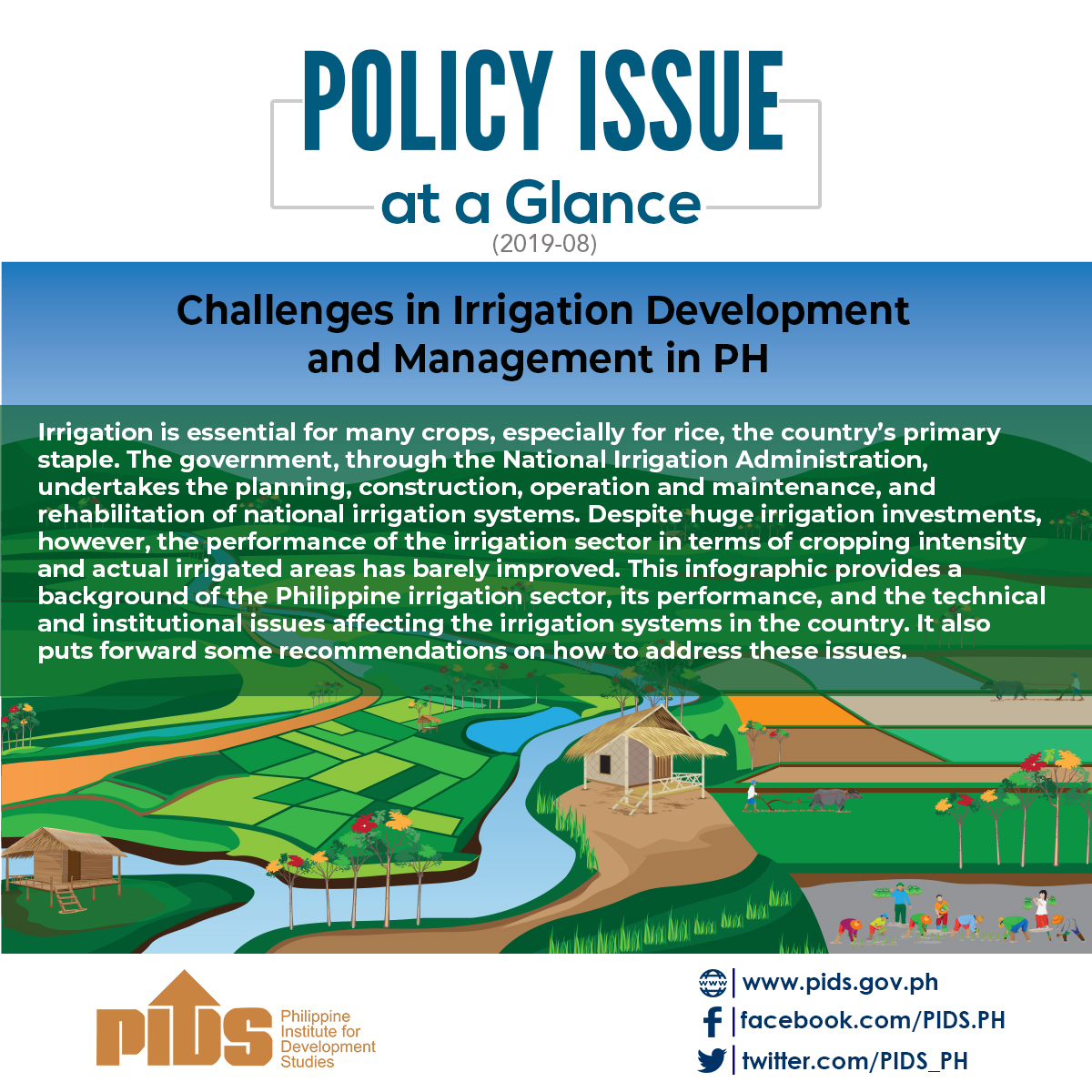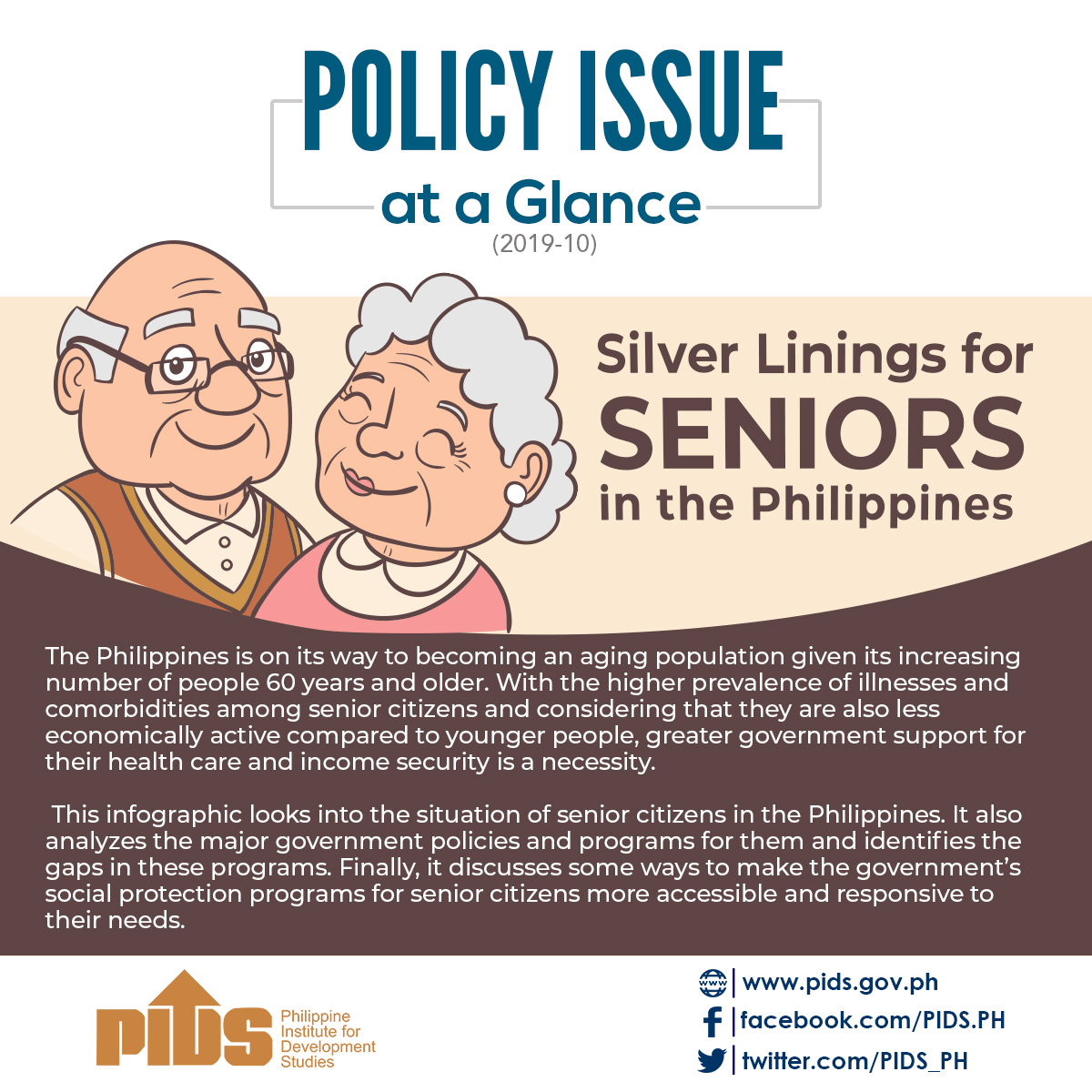
DEVELOPMENT RESEARCH NEWS DRN 2016 Vol. XXXIV No. 1: The Philippine Economy in 2015 and Prospects for 2016
by Roehlano M. Briones
PIDS Senior Research Fellow Roehlano Briones provides an assessment of the Philippine economy in 2015 and outlook for the current year in this first issue of the DRN for 2016. Amid global and regional challenges, such as the economic slowdown in big Asian economies and the sharp drop in oil prices, Briones underscores the country's resiliency as exemplified by sustained economic growth, improved capital formation, and sound fiscal balance. The lack of inclusiveness, however, remains a major issue. But our macroeconomic fundamentals have remained strong despite various risks and shocks. Briones asserts these are attributable to good governance that has facilitated and supported economic reforms.
This issue also features three of the Institute's recently completed studies/projects and some of their main findings and policy recommendations. These research studies/projects include the competitiveness and key reform areas in the rice and bus transport sectors, evaluation of the National Greening Program, and amendment of the personal income tax law. Click here for the full article
POLICY NOTES
PN 2016-09: Importance of Entrance Exam Scores for Selecting Grants-in-Aid Recipients
by Denise Valerie Silfverberg
The Students Grants-in-Aid Program for Poverty Alleviation is one of the initiatives of the government to break the poverty cycle by providing support to students who cannot afford tertiary education. It aims to increase the number of higher education graduates among poor households and employ these graduates in high value-added occupations. The selection of grantees is important in achieving the objective of the program. Given the thrust of the program, it is also important that the grantees have a relatively high likelihood of completing their degrees. This Policy Note focuses on the relationship between entrance exam scores and academic performance. It points out that administering admission exams is the best available tool for gauging the ability of students to complete the program. Click here for the full article
PN 2016-08: Promoting Inclusive Growth through Higher Education
by Dante B. Canlas
Investing in human capital, especially in higher education, contributes to inclusive growth. Households, for the most part, finance higher education. To make growth that is driven by higher education inclusive, families with insufficient funds must have access to credit markets that they can turn to in order to finance their children's college education. This Policy Note analyzes the role that investing in human capital, especially in higher education, plays in economic growth. It also proposes some policy recommendations that will address concerns about inequitable growth, particularly the country's policy for higher education. Some of these recommendations include designing student loan and other financial aid programs, setting content standards in core courses and subjects in all colleges and universities, and devising standardized tests for determining compliance with content standards of both public and private higher education institutions. Click here for the full article












